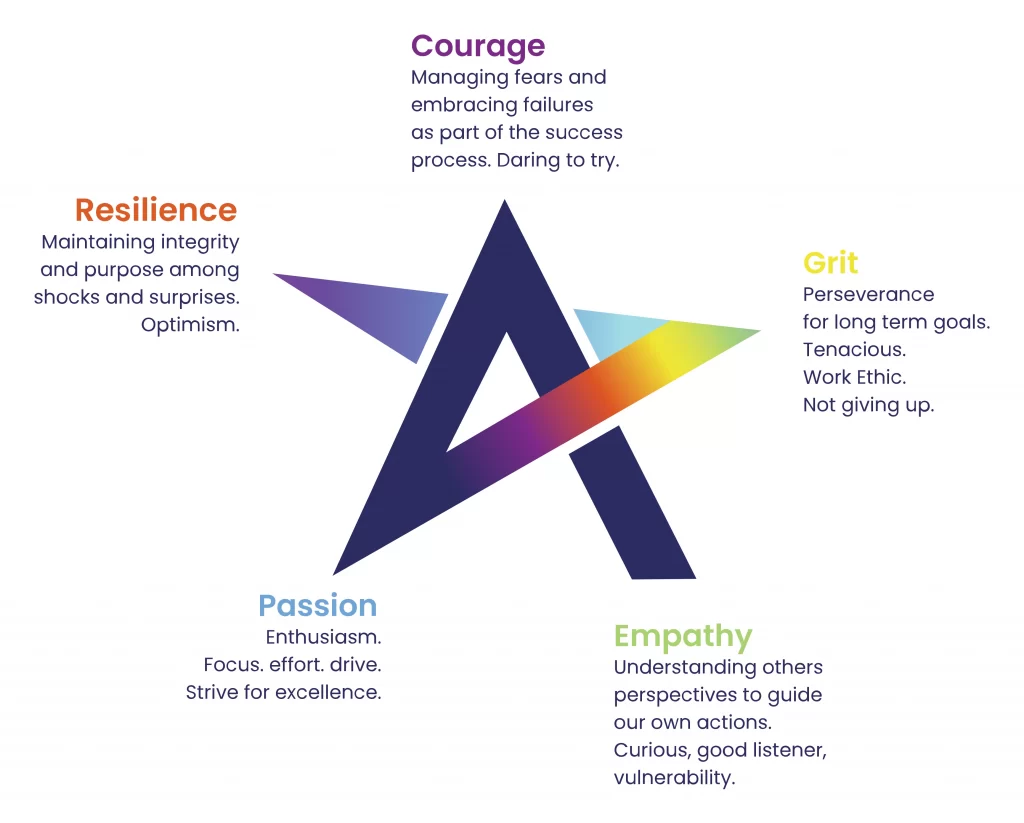Childhood challenges are a part of growing up. Do you remember yours? There are challenges you overcame and feel proud about. Along with the ones you know you needed a helping hand to face.
Helping your child face their challenges can see them grow with personal skills they’ll carry through their life. Here’s practical knowledge and tools to guide them to success.
What are the challenges facing kids today?
The challenges we faced as children are not the same as today’s, especially with the digital world. It’s important to recognise some of the challenges that may be a part of your child’s life, such as:
- School (learning and social)
- Friendships
- Sports or performance challenges
- Cyber or real life bullying
- Family dynamics and challenges
- Fear or anxiety
- Information overload
Why challenges are important to face
It’s natural as a parent to want to remove any discomfort that your child is feeling about a challenging situation. However, it’s from navigating these challenges that a child develops in many areas, such as:
Building grit Learning determination to keep on trying rather than giving up. You can tell your child how proud you are that they kept working to improve.
Developing empathy By facing a challenge, your child can appreciate how others feel about that situation too and be encouraged to share their learning and support their friends.
Developing courage Facing and overcoming a challenge requires stepping out of their comfort zone, which develops their sense of courage.
Building confidence Facing challenges helps a child to learn their weak spots and learn when to ask for help. Being able to speak up for themselves and others is a confidence builder.
These essential child development steps are so important that they’re the values that guide us here at Academe Time.

How can you help your child face a challenge?
Preparing your child for life’s challenges happens daily in the small and bigger moments as they grow. Some of the strategies you can use to support them include:
1. Feelings are okay to talk about
Allowing talking about their feelings to be just an ordinary conversation.
- This helps to build their understanding and expectations along with the importance of communication when challenges naturally arise
- Helps them to recognise choices and consequences before and after challenges
- Teaches them to ask for help to remain positive with their mental health
2. Walk in their shoes
Putting yourself in their shoes and meeting your child at their level helps.
- Coming down to their height whenever possible, so you’re face to face can help them feel heard and you can see what they see from their perspective
- Talking about what they’re feeling and suggesting a strategy to help, with empathy
- Be sure to share that you believe in them. Showing your confidence in them, even if they ‘fail’, will provide security to face their challenge
- Highlighting their strengths instils confidence and acts as a repeat circuit. Because those strengths came from previous challenges they’ve overcome!
3. Allow them to make mistakes
It’s not through being rescued from mistakes that your child will learn and grow. Instead, it’s making a mistake and getting back up that teaches resilience, persistence, courage and confidence. These are the skills they’ll take into their next challenge.
As hard as it is, teaching them how to face a challenge rather than avoiding it is the better way.
Our Academe Time programs often set up small challenges as we introduce new skills. Developing their grit, persistence and courage to try and then attain a skill, sees the mistakes they made on the way replaced with confidence.
4. Discover their circuit breakers
We can all freeze, meltdown or crumble when faced with a challenge, but a circuit breaker can act like a reset button. What that circuit breaker is may be different for everyone, so try one of the below to help your child reset and refocus for the challenge ahead of them.
- Music
- Laughter
- Memories
- Food or drink
- Quiet space
5. Challenges can be child’s play
The importance of play as a strategy is often forgotten, especially as kids grow older. However, it’s about a space for the mind to explore and be creative in finding strategies for facing challenges. Look to:
- Providing time to play, whether it be lego, sport, music, role-playing or something else that takes them into another playful space
- Activities they enjoy, whether it’s group-focused such as one of our Academe Time classes or another extra-curricular activity that allows for personal growth and development
- Creating a growth mindset which is an important skill that teachers such as our Academe Time instructors know how to foster in children. It teaches children to be open to change, learning, challenges with a toolkit of strategies that work for them.
6. Shifting focus
Big feelings that come with facing a challenge can be overwhelming
- Shifting the focus and doing something for someone else can create positive feelings and perspective for children
- Exposing your child to different cultures, diverse communities, and those facing disability or disadvantage can help build empathy they can tap into for their challenges. Look to how you can support or volunteer in your community to create this different point of focus.
Tough times and challenges are a part of the ups and downs of life, with a different experience for each child. Helping children build confidence to cope with them helps to prepare them for adulthood, with the positive memories of childhood shaping their future.
If you’d like to discuss how your child faces challenges and what extra-curricular activities may support this development, reach out to us to discuss and learn more. Contact us.




